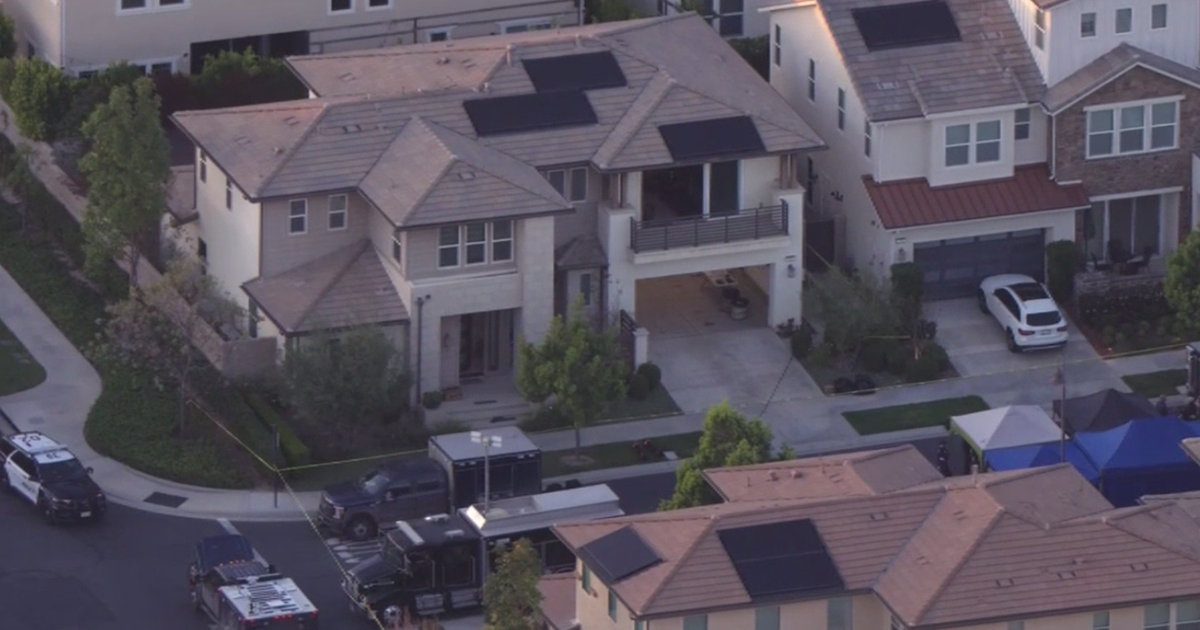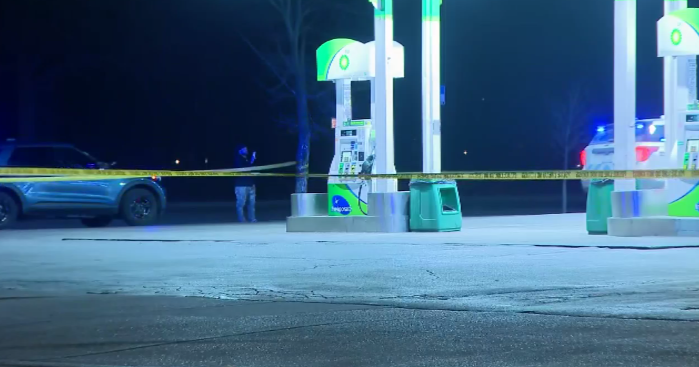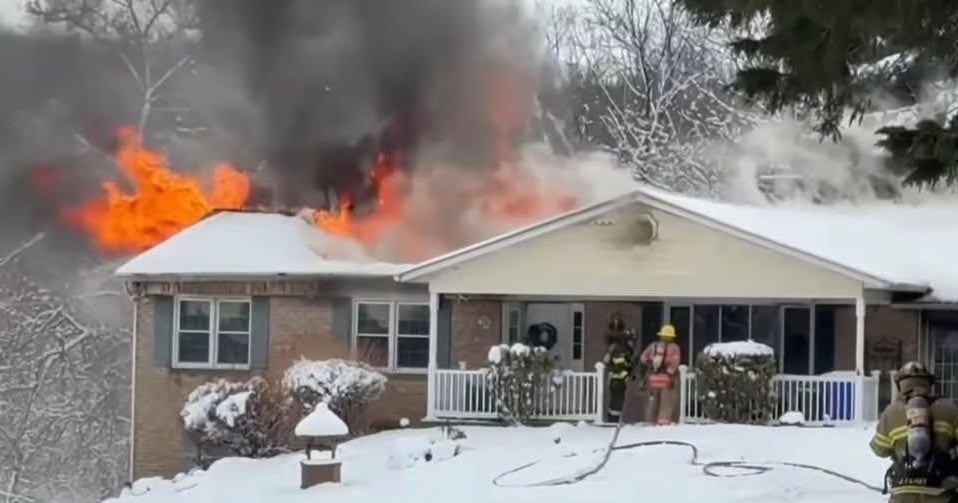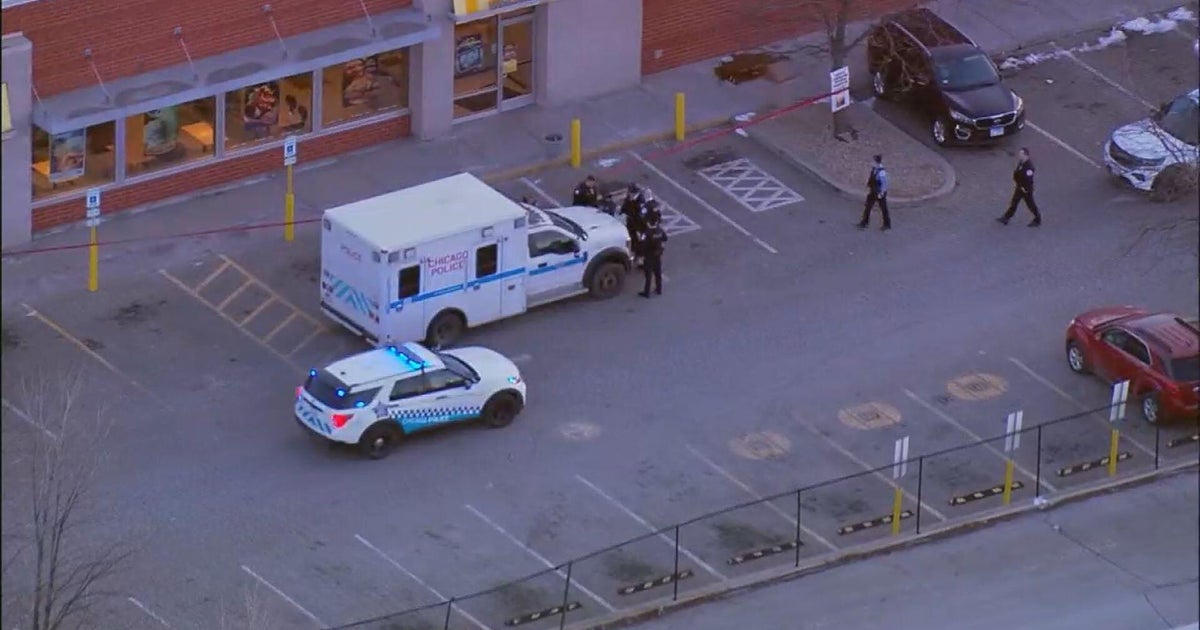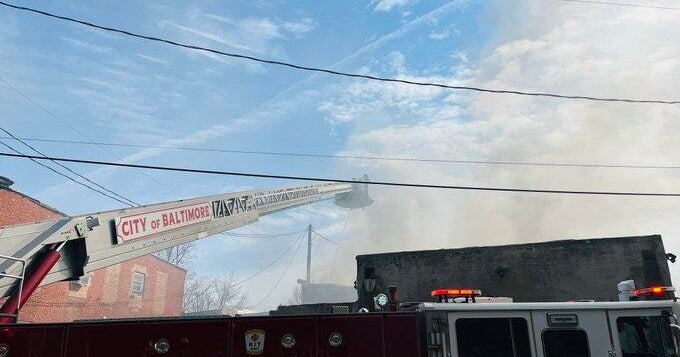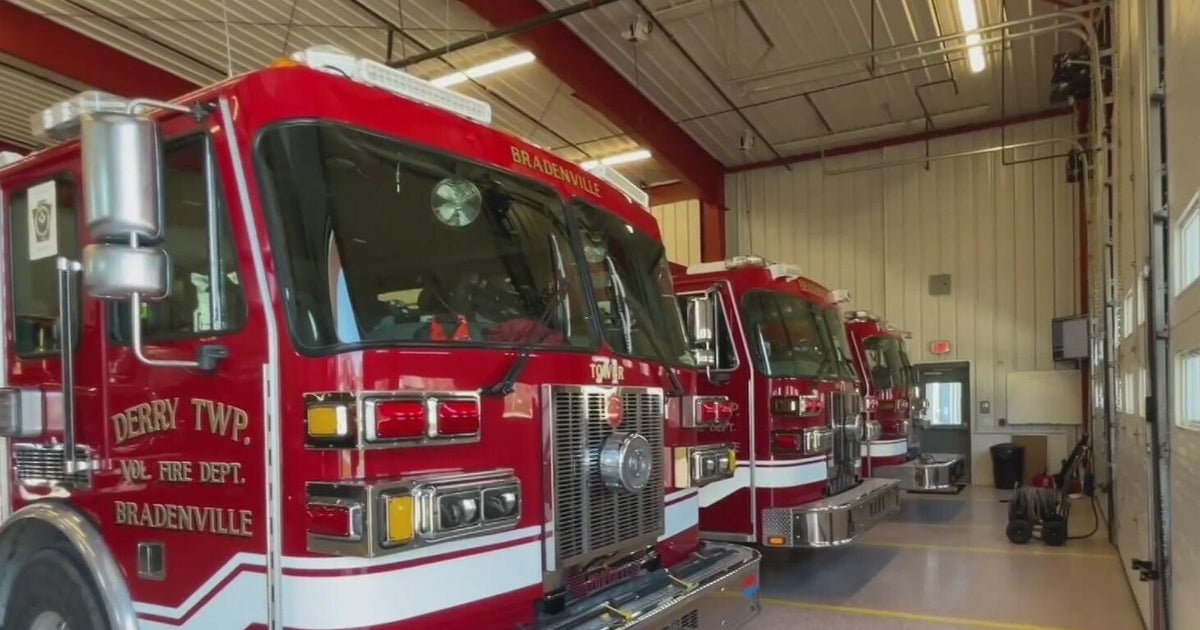No Communication With Firefighters Before Baby Was Found Dead Outside Fire Station; Could Baby Boxes Be A Last-Resort Option In Cases Like This?
CHICAGO (CBS) -- Chicago Police on Monday were still looking for the person who abandoned a baby in a duffel bag outside a Near North Side fire station over the weekend.
Firefighters found the baby dead Saturday.
With so many unanswered questions two days later as police continued to investigate, CBS 2's Tara Molina talked to an organization that's been working to prevent this for years.
The newborn was left in a duffel bag Saturday outside the firehouse at 1044 N. Orleans St. The door of the firehouse is clearly marked to show that it is a Safe Haven location.
But that only applies when there is direct contact and communication with staff at the firehouse – something we are told didn't happen.
There was no call for help, and no ringing of the bell outside the firehouse. According to the Chicago Fire Department, whoever left the newborn baby boy in the duffel bag did nothing to reach the people inside.
State law requires that people dropping off newborns do try to reach those inside. An act in place for more than 20 years in Illinois allows a person to relinquish an infant anonymously and with legal protection.
But when a physical hand-off to staff doesn't happen, that is outside of the law and considered illegal abandonment. In this case, it resulted in death.
Since the Safe Haven act was passed in 2001, more than 145 babies have been brought to Safe Haven locations. More than 85 babies have been illegally abandoned and more than half of those didn't survive.
As for a camera that points at the door of the firehouse, Chicago Police won't say if it works or if it's part of their investigation.
We know firefighters were present when the baby was found early Saturday. It is not clear when the baby was left outside.
We've confirmed the Orleans Street firehouse is the city's Air Mask Service headquarters, where the Fire Department stores and maintain important equipment – so we are told it's often left unmanned while staff services other stations.
A spokesperson said that is why in-person contact is part of the law. But that isn't the case everywhere in the U.S.
Baby box programs provide electronically-monitored boxes that allows for complete anonymity as part of the Safe Haven law in other states.
"A woman doesn't have to walk in any face anyone," said Monica Kelsey of Safe Haven Baby Boxes. "It's heated. It's cooled. It locks upon when a child is placed inside. But the important part is that the box automatically calls 911 on its own."
We've shown you the boxes in use in nearby Indiana, where 92 have now been installed.
"Since we've launched the baby boxes, we have had zero dead babies in our state," said Kelsey.
Fourteen babies have been saved through the boxes, and another 115 have been handed over face to face since Kelsey – a retired firefighter and medic – started the program in 2016 just to provide a very last resort.
"The last resort options for those moms, like this mom from Chicago, that clearly didn't want to see anyone; that clearly wanted anonymity, but didn't get it," Kelsey said, "and now we have a dead baby and probably a mother that's going to spend the rest of her life in prison."
Right now, there are also boxes in Ohio, Kentucky, Arkansas, Florida, and Arizona. So, why not Illinois?
"We did try to get the law passed in Illinois – and actually the Safe Haven people that run the Safe Haven awareness and education are completely against it," Kelsey said.
Indeed, the Illinois Save Abandoned Babies Foundation is against the use of the boxes. The main reason is that they think that physical contact is important.
Dawn Geras of the Save Abandoned Babies Foundation of Illinois released a statement quoted here in part, which outlines reasons why her organization believes baby boxes are a bad idea:
"Adding Boxes to the Safe Haven program, while well intended, is misguided. It opens a Pandora's Box with unintended consequences. There is strong opposition to the idea of placing the boxes in hospitals, police or fire stations.
"Some of those reasons are:
"1) Boxes remove the chance for a mother to be offered medical care & supportive services. About 25% of parents who come to a Safe Haven, planning to use the Safe Haven Law, when given the opportunity to talk about options, chose to either made an adoption or parenting plan.
"2) Boxes strip away any chance of personal contact with a person which means the parent is completely alone, contributing to being frightened. She does not have the comfort of actually placing her baby into the arms of anyone. Instead, the idea that what she is doing is 'bad' and something that she should feel ashamed about is reinforced.
"3) Boxes create confusion as to where and what is considered a Safe Haven and what is a Box. There are many bad possible out comes. Imagine a mother coming to a hospital, looking for a Box, but the hospital doesn't have one. She becomes frustrated, confused, & leaves the baby alone, abandoned. Will the baby survive? The mother is bleeding, in need of medical help that she does not get. What happens when she is found having bled to death?
"4) Many women are looking for a safe delivery of their baby in a hospital. Baby Boxes will confuse hopes for a safe delivery by suggesting that her only option is to leave the baby in a Box.
"5) Many States offer a packet of information for the relinquishing parent. The packet may provide a request for medical information and explain parental rights under the law. Using Boxes prevents the parents from receiving this important information.
"6) The United Nations Committee on the Rights of the Child has called for a ban on the boxes in Europe and urged countries to provide family planning and other support to address the root causes of abandonments, according to spokeswoman Elizabeth Throssell.
"7) A large concern came from the Nassau County Police Department and New York City Police Department's Bureau of Special operations known as Homeland Security. Even before 911, the departments had grave concerns about pipe bombs being placed inside one of them by terrorists and causing catastrophic injuries to doctors, hospital stuff and first responders. In today's environment we have seen attacks in Boston, California, New York and many more locations in the USA. If a terrorist makes a coordinated attack on a hospital, police/fire station, key emergency personal will be killed or critically wounded. Indianapolis, Indiana Homeland Security list over 8,500 potential terror targets. 'Boxes' will be added to the list as a high risk location making them a 'soft target' and affect costly increase in liability insurance at these locations.
"8) And the cost! Each box costs some $10,000 to build and install. There is also a monthly maintenance fee.
"9) Most hospital, fire and police stations are brick or stone buildings, making installation nearly impossible. These buildings are built as the strongest structures in the neighborhoods. It would be extremely costly to cut a hole into one of these buildings to place a Box in a prominent place that could be easily found by a woman in crisis. Does the state have the money for this?
"Think about what that money could do if used wisely for an awareness campaign instead. How many more babies and mothers would be saved by reaching all women?
"Safe haven programs have saved over 4,000 infants since its conception in 1999. The numbers are increasing each year as more people learn about the law. What is needed are awareness campaigns NOT Baby Boxes."
So could a box have provided a last resort in this case? Advocates said we won't know until we have the autopsy results.
Police said of this case late Monday: "No one is in custody. The investigation is still ongoing. There are no updates at this time."

